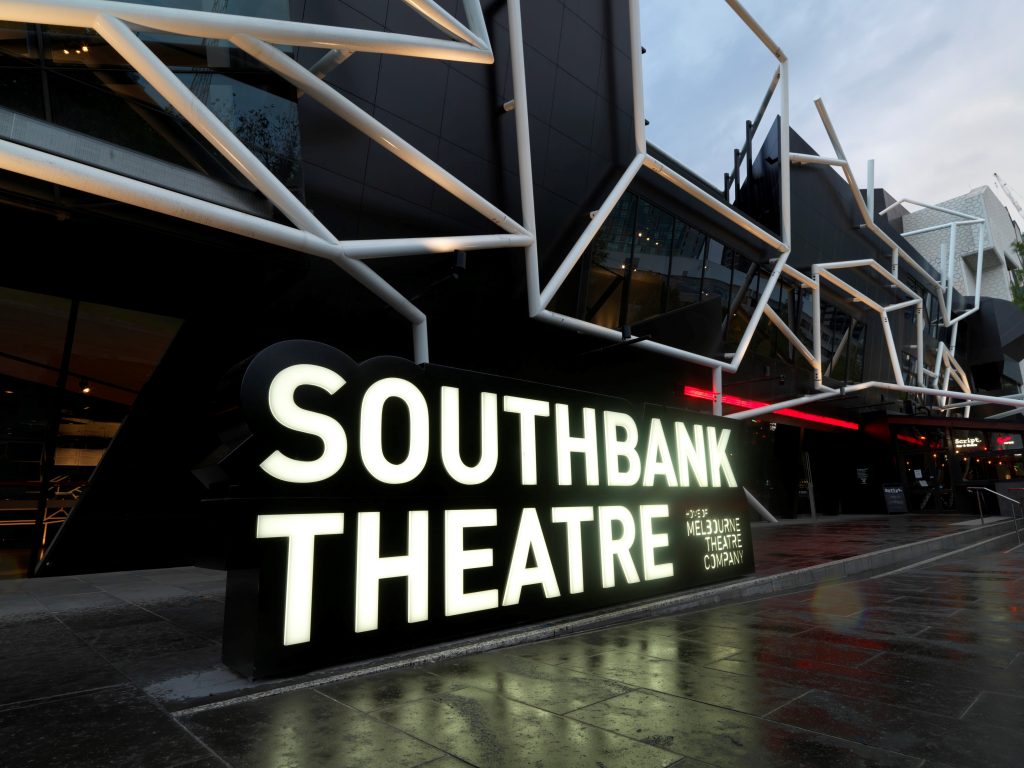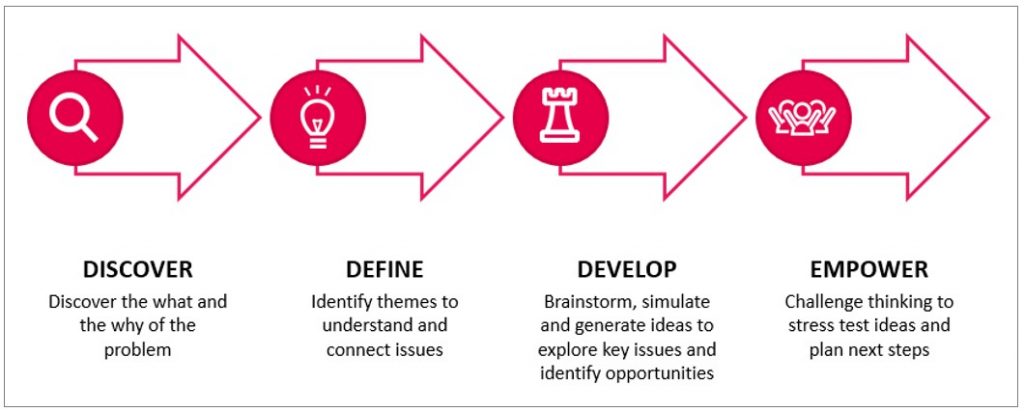How Gemba’s “strategy hack” approach provides clarity and actionable strategy – a case study with Melbourne Theatre Company

Like all entertainment and cultural organisations in this time of COVID-19 disruption, the Melbourne Theatre Company is planning for a return to live performances in crowded theatres amid high uncertainty.
When will government restrictions ease to the point of allowing mass gatherings in theatres? What are the financial implications of playing to half-full houses if every second row needs to be empty? How should physical spaces of foyers, bars, seating and toilets be redesigned to reassure patrons of their safety through social distancing protocols? How should staff respond when an audience member demands to be moved to a new seat, when someone nearby inevitably coughs during a performance?
The theory and practice of strategy development has evolved to accommodate uncertainty – “known unknowns” are nothing new, and in the digital age long term strategic planning is usually gazumped by a new platform or consumer trend that could not have been anticipated. A global pandemic has brought this challenge into even starker relief.
Yet among our clients in the sports and entertainment sector, certainly prior to COVID-19, three- or five-year strategic plans and annual operating budget cycles (linked to the cycle of their season) are the norm. Most of these organisations experience massive inertia when it comes to being able to shift course or make important strategic decisions to adjust to crises (like we are experiencing now) or go after new opportunities (which will inevitably come once the current crisis eases). The urgent and operational realities of putting on matches or shows week to week too often prevent timely focus on strategic decision-making, or budgeting for uncertainty.
How to overcome this inertia? In a period of uncertainty, how to plan for multiple scenarios, work with the best available information at the time, decide quickly, act decisively, and be prepared to adjust if required?
At Gemba, we have been working with our clients using an approach we call a “Strategy Hack” – rapid strategic problem solving, using a structured approach over a half-day or full-day, to break through organisational inertia and get to actionable decision-making.
We have found that by bringing together a cross-section of people from across the client organisation, having plenty of accessible data available to interrogate and test hypotheses in real time, a structured approach to “cracking the case” within the defined timeframe, and with the external perspective of Gemba’s industry knowledge and experience, we have helped organisations stop spinning their wheels and push through to taking action on important strategic issues.

The Gemba Strategy Hack approach
In June 2020, as across Australia restrictions were starting to ease but, in some states (including Victoria), new cases were emerging, Gemba hosted a Strategy Hack with the Melbourne Theatre Company. The half-day session, conducted remotely via Zoom, was designed to explore the impacts of COVID-19 on the MTC, stress-test management’s current thinking, and prioritise key actions and decisions.
Like all organisations right now, the MTC was working with incomplete information – some recent surveys of its members, some data from an industry organisations it is a member of, constantly evolving advice from the health department – as well as differing perspectives among stakeholders.
Over the course of four hours, we worked with senior executives to help structure and guide the MTC’s actions over the coming weeks and months as it moves to return to theatres. The plan aligns with the organisation’s existing long-term vision (“To be the leading theatre company in Australia, reflecting the changing world around us and enriching lives in the way only great theatre can”) but narrows the near-term focus to six pillars aimed at getting back on-stage safely, with high-quality artistic productions, effective communications and marketing to retain current subscribers and appeal to new audiences, and ensuring important partnerships are maintained and expanded.
Across these pillars, we helped MTC identify specific actions – some focused on execution excellence in returning to live performances, others targeted future opportunities and growth. It is important in moments of crisis that longer-term strategic priorities are not abandoned, even as most resources are focused on the immediate challenges – in this way the organisation will emerge stronger and primed to grow, rather than just survive.
“We found the strategy hack incredibly useful. Gemba’s ability to listen to us, distil information on the fly and prioritise our next steps was very impressive and we gained some terrific insights from their industry research and analysis.”
Vanessa Rowsthorn – Marketing and Communications Director, Melbourne Theatre Company
In a cost-constrained world that our industry now finds itself in, this kind of low-cost model for facilitated strategic decision-making is going to be even more important. For cultural, entertainment and sports organisations (indeed, for most companies), a strategic planning process that takes months, costs a lot, and lacks flexibility is no longer appropriate to the uncertainty of our time.
As organisations start to move beyond the immediate crisis management mode, and into longer-term thinking about what the future holds and how their strategies need to change, a “Strategy Hack” approach may be helpful.
To find out more about Gemba’s Strategy Hacks, click here or contact us.